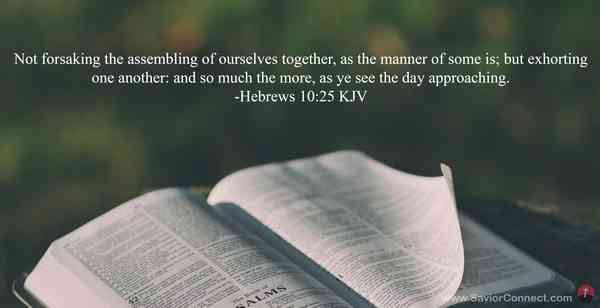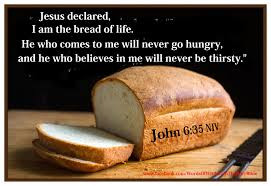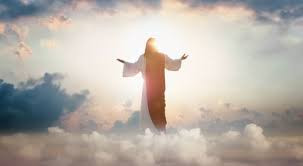
BY PROSPER TINGINI
All of us make some mistakes throughout our lives. We make errors in our judgements, morality, faith, choices, enmity, reactions, and a host of other misdemeanors too numerous to mention. Nobody can say he/she is always right or that he/she doesn’t do any wrong. Even a genius can also sometimes get things wrong. No person has attained a perfect score (100%) in every exam of every subject at school. Humanity is not perfect. Even our Creator made note of that after He created mankind.
We were created in the image of God, in the spiritual sense. Our spirits should lead and guide us. At one time the Lord our God reasoned that He had made an error in his creation of mankind. Reads Genesis 6:5-8: “The Lord saw that the wickedness of man was great on the earth, and that every imagination of the thoughts of his heart was evil continually. And the Lord was sorry that he had made man on earth, and it grieved him to his heart. So the Lord said, “I will wipe out man whom I have created from the face of the ground, man and beast and creeping things and birds of the air, for I am sorry that I have made them.” But Noah found favour in the eyes of the Lord.
In essence, because God was sorry that He has created humanity, He was admitting that not only was his decision to create humanity a regrettable mistake, but that his creation (of His own image) was not perfect too. His reaction to both his supposed error and to our transgressions was that He should wipe out all of His living creations off the face of the earth. Was that judgement right? Is it not true that the beasts, creeping things and birds of the air were innocent of the sins committed by mankind? He proceeded to execute his sentence across the board through floods, save for Noah and his family and a male and female pair of each of His living species of His creations. However, soon after, He was consumed with guilt and felt a deep remorse for the severity of His actions. Henceforth, He vowed He would never again do such thing, but restrain his anger and exercise some element of forgiveness in his dealings with mankind. Thus, the seeds for forgiveness were sown by The Lord our God. In Genesis 9:11, says the Lord: “I establish my covenant with you, that never again shall all flesh be cut off by the waters of a flood, and never again shall there be a flood to destroy the earth.” With this covenant came the establishment of forgiveness. To forgive is divine.
Remember that Moses, the person the Lord our God chose to speak with face to face, was an exiled murderer who had killed an Egyptian (Exodus1:11-13). God overlooked and forgave his sins and assigned him to lead the Hebrews out of Egyptian slavery. He was to be a perpetual messenger between God and the people. He would carry in his hands the laws and the commandments, the statutes written in God’s own handwriting, directly from the Lord to the people. Deuteronomy 34:10-12 describes Moses; “There has not arisen a prophet since in Israel like Moses, whom the Lord new face to face, none like him for all the signs and wonders which the Lord sent him to do in the land of Egypt, to Pharaoh and to all his land, and all the mighty power and all the great and terrible deeds which Moses wrought in the sight of all Israel.”
Take note also of Saul, who was in the habit of persecuting and murdering Christians. Jesus Christ forgave him of his diabolic acts and converted him into a Christian apostle, Paul. Jesus tactfully assigned him a mission to preach to the gentiles, non-Jewish people who worshipped other gods and were not under the law (Acts 9). He executed his prescribed mission expertly, teaching about Jesus Christ, grace and the forgiveness of sin; like no other of all the prophets. Today he is a saint, St Paul.
In our dealings with each other, we should always remember that we all err. We all make mistakes, do wrong, go astray, loose faith, misbehave, offend, sin, trespass, and etc. Jesus Christ always teaches us of the importance of forgiveness. He tells us that for our sins to be forgiven, we should also have forgiven those who have wronged us. It is a two way process. Forgive and be forgiven. No sin is too big to be forgiven, even if it means some restitutions are to be made. As mankind, we are all of one family under the Lordship of our Heavenly Father. For this reason, our family must be a place of life and not a place of death; a place of forgiveness, a Paradise and not a place of hell; a healing territory and not a place of disease, an internship of forgiveness not guilt. Forgiveness brings joy where sorrow has brought sadness, of healing where sorrow has caused disease.
In a recent article by Pope Fransisco, he emphasised that a family is a place of support and not of gossip and slander of one another. It must be a place of welcome, not a place of rejection. It must be a shame to those who plan evil about others. We are family and not enemies. When anyone is going through a challenge, all one needs is support from family.
- Chamisa under fire over US$120K donation
- Mavhunga puts DeMbare into Chibuku quarterfinals
- Pension funds bet on Cabora Bassa oilfields
- Councils defy govt fire tender directive
Keep Reading
He went on to write; “There’s no perfect family. We do not have perfect parents as you’re not perfect yourself. We do not marry a perfect person and we do not have perfect children.
We have complaints from each other. We cannot live together without offending one another. We are constantly disappointed. For so many reasons at different times, we disappoint one another. There is no healthy marriage or healthy family without the exercise of forgiveness. Forgiveness is the medicine of family joy and happiness. Forgiveness is vital to our emotional health and spiritual survival. No matter the offence or who the offender is, without forgiveness, the family becomes an arena of conflict and a fortress of evil. Without forgiveness, the family becomes sick and unhealthy.
Forgiveness is the cleansing of the soul, the purification of the spirit and the liberation of the heart. No sin is too big to be forgiven.
He who does not forgive does not have peace in his soul and can not have communion with God. Unforgiving is evil and a poison that intoxicates and kills the one who refuses to forgive. Keeping a heartache of unforgiveness in your heart is a self destructive act. Those who do not forgive are physically, spiritually and emotionally ill and they tend to suffer in many ways.” Amen.
- Prosper Tingini is the Scribe for The Children of God Missionary Assembly. Contact details: WhatsApp: 0771 260 195 or Email: [email protected]











